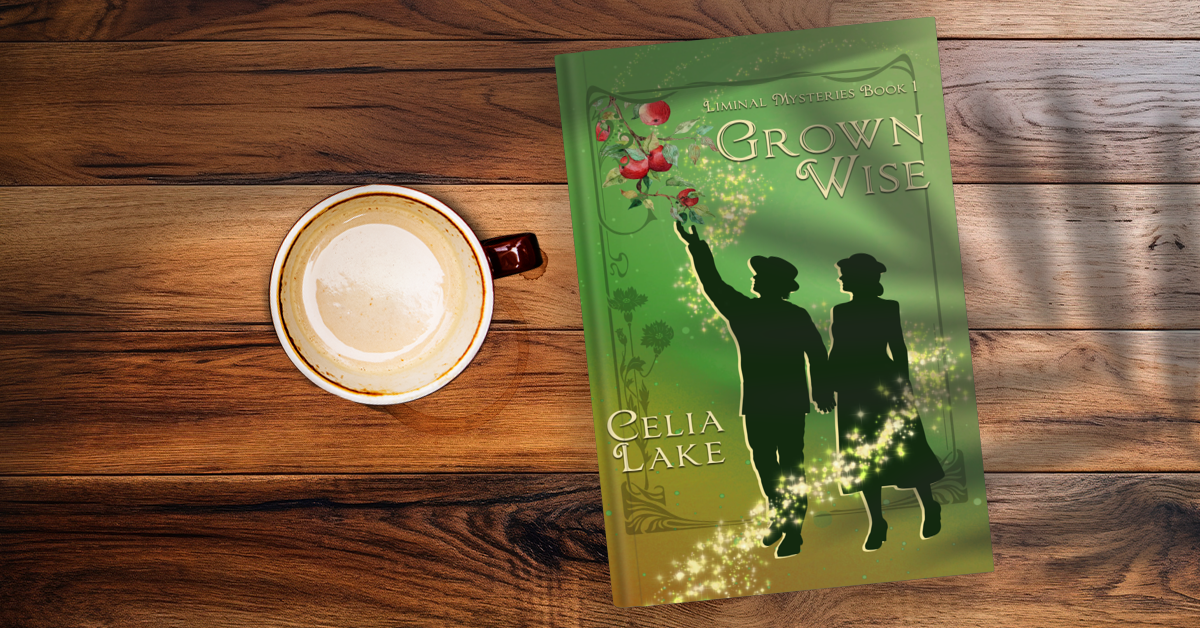Time for answers to some questions about the land magic! These come from a discussion in the comments of a post for patrons on my Patreon. It’s an episode where various people – nine of them – are talking about the land magic. It’s in A Fox Hunt, a series of prequel scenes before the events of Grown Wise.
You might also want to check out some of the previous conversations about the land magic here from 2022. Though I’m going to mention the relevant bits for these questions below.

Naming an Heir
The ideal is that the Heir to the land magic has a chance to learn all the moving pieces of being Lord or Lady before they take that on. It’s also obviously helpful to have a named Heir in case something happens to the Lord or Lady. Most families do favour having a bloodline connection.
But research (such as it is) hasn’t settled the question of whether the bloodline connection matters, or whether it’s being familiar with the landed estate from an early age. As you can imagine, it’s hard to get a control group for this kind of study.
There are a number of ways someone might name an Heir.
- If the Lord or Lady has children. They might name their child Heir any time after the child turns 12 and has made the Pact. (Various families have their own customs around timing, some do it a bit later.)
- If there are no children (or no children yet), a younger sibling, cousin, or more distant relative might be named Heir.
- Someone might be named Heir temporarily (for values of ‘years, more than a decade’ temporary). That’s especially true if it’s thought likely that the Lord or Lady will have children or choose to adopt in someone specific from the more distant family.
- In some cases, an Heir might not be named. There’s no formal Heir to Ytene from when Geoffrey Carillon inherits in 1922 until his son Edmund turns 12 in 1938.
- If someone inherits very young, there might be appointed as regent. This is mentioned in Nocturnal Quarry and some followup. More below.
Stepping down as Heir
It’s possible for a Heir to step down. In fact this is fairly common if the Heir is a younger sibling of the Lord or Lady, and there are children under the age of 12. In Illusion of a Boar, Orion Sisley’s younger brother Achilles is his Heir. Everyone expects that when Orion’s children are older, one of them will likely become Heir. Similarly, Isembard is his brother Garin’s Heir for most of their adult lives. That lasts until Isembard steps down in favour of his daughter, Ursula.
This brings us to the first of the actual questions (leaving the original spellings here…)
But what happens if an Heir who is, say, a sibling or cousin of the current Lord or Lady, inherits before that Lord or Lady’s child is old enough to be ritually named Heir? Does the interim Heir become an interim Lord or Lady? Are they expected to favor the original Lord/Lady’s offspring when choosing the next Heir? Or does the whole thing devolve to them and the offspring is/are out of luck? It seems like the system leaves room for some rather dastardly maneuvering on the part of an unscrupulous Heir.
Honestly, this depends a bit on the family. The deal is that the Lord or Lady gets to name their Heir. It’s also trickier for the Lord or Lady to step down. (Though that’s also possible, especially if there’s a significant ongoing health issue or the land is doing poorly. See The Hare and the Oak for the latter).
Some families have a tradition of favouring the sister’s son, if there’s no son in the direct line. The Sisleys do this when it’s relevant, it goes back to an old pre-Norman custom in the area.
Demographics
Honestly, most often, there are not a vast number of plausible candidates. Albion’s had fairly reliable magical contraception for a good long while. Most marriage agreements (when those are in play) are for two children. That means there aren’t necessarily a horde of people in the next generation.
And many families leave the daughters out of this equation because finding a suitable man to marry into the family (if a daughter becomes Heir) can be a lot trickier to arrange. They prefer their sons or nephews or whatever as Heirs. (Men marrying in might want other concessions to do so that affect the land, inheritance for other members of the family, etc. Families with one child who’s a daughter don’t have a division of property problem the same way.)
The mechanics
Generally, if someone’s stepping down as Heir, there’s a reason for it. A more direct relation has come of age. Or there’s some reason someone can’t inherit. For example, it’s become clear they’re not going to be able to tend the land magic for some reason.
But if someone does inherit, then they get to make their own choices about who becomes their Heir.
You can see this in the Mysterious Fields trilogy. After a chain that goes father to son, Sigbert names Dagobert (his uncle, jumping back up another generation). If Garin had turned 12 already, Sigbert might well have named Garin instead. Or he could have named one of his Aunt Bradamante’s children.
I am quite certain historically there have been tangles of one person getting named, the Lord dying, the new Lord naming someone different, and so on. This doesn’t usually come down to open conflict.
If it does, well, handling the problems that can come up (especially unscrupulous moves) is one of the things the Council is for. They can bring a vast amount of social pressure to bear, as well as more direct magical responses.
That’s especially true if there were formal oaths in play. Sensible Lords not sure about the actions of their Heirs often do have oaths enforced by the Pact about what happens after they die that remain binding. As well as witnesses to those oaths and other precautions.
Wartime considerations
One of the things that Albion learned in the Great War was that having both the Lord and Heir in combat at the same time was perhaps a really bad idea. Not just because of death, it turns out. As they figured out over the next decade, there were huge problems with damage to people’s land senses. (That bit really needs to be its own post, I will come back to it.)
By the Second World War, arrangements were generally made so that the Lord and Heir were not both in combat positions.
This wasn’t universally followed. Both Orion and Achilles are serving in active combat at the same time until Orion’s injury in 1943. However, they were in different arenas of combat, in hopes that something wouldn’t happen to them both at the same time.
However, the general idea was more or less sound. This is one of the places where you’d see a temporary Heir who expected to step down after circumstances changed.
However, the Blitz made that more complicated. In one of the Fox Hunt extras on Patreon, Ursula references someone stepping down as Heir in favour of his sister. He was going into combat. Unfortunately, his sister was then killed in the Blitz. Sensible plan, but with tragedy to follow. Once the war was over, the brother was named Heir again.
Sites of difficulty
One thing where there is more trouble is in the larger family estates. The demesne estate goes to the Lord or Lady. This generally involves a manor house, associated farmland, orchards, tenant leases, and other forms of income. However, that says nothing about all the other family resources! People can be and often are dastardly about money, precious family objects, and land that isn’t the demesne estate.
There’s a reason the inheritance court in Trellech has an entire courtroom. And a reason that the people working in that courtroom know the Guards and Penelopes well. Also some reasons that the demesne estates typically have exceptional warding. And reasons that many people at that level of society take a number of sometimes excessive protective measures at larger gatherings.
However, a Lord (or Lady) can leave their property whatever way they want, other than the demesne lands. Geoffrey had a substantial inheritance from his parents before they died (enough to make him a man of independent wealth). He can leave the other family properties to whichever of his family he likes.
Similarly, Garin and Isembard had inheritances from their parents that split things up fairly equitably. The Essex House, which Isembard inherited, is actually a much larger manor house and arguably more generally valuable as a property. Arundel has more associated farms and tenants, as well as being the demesne estate.
Young Heirs
So one last problem that can come up is that being 12 is old enough to be named Heir, but not actually old enough to run an estate. This comes up at the end of Nocturnal Quarry, where Geoffrey Carillon is asked if he’ll act as regent for the southern half of the New Forest.
The situation there is that the current Lord has cancer. His Heir is his grandson (his son having died in a car accident some years previously). Geoffrey agrees. Everyone in 1938 is also aware that the non-magical folk in the New Forest are going to respond better to Geoffrey (an officer in the Great War, but too old to go into active fighting in the Second World War) than a 13 year old.
In this case, Geoffrey does not become Lord of both places. That may have happened occasionally historically, but no one wants to do it again. It’s just really hard on the psyche and magic. But Geoffrey does ritually take on some responsibility for keeping things running and training up the new young Lord in what he needs to know.
